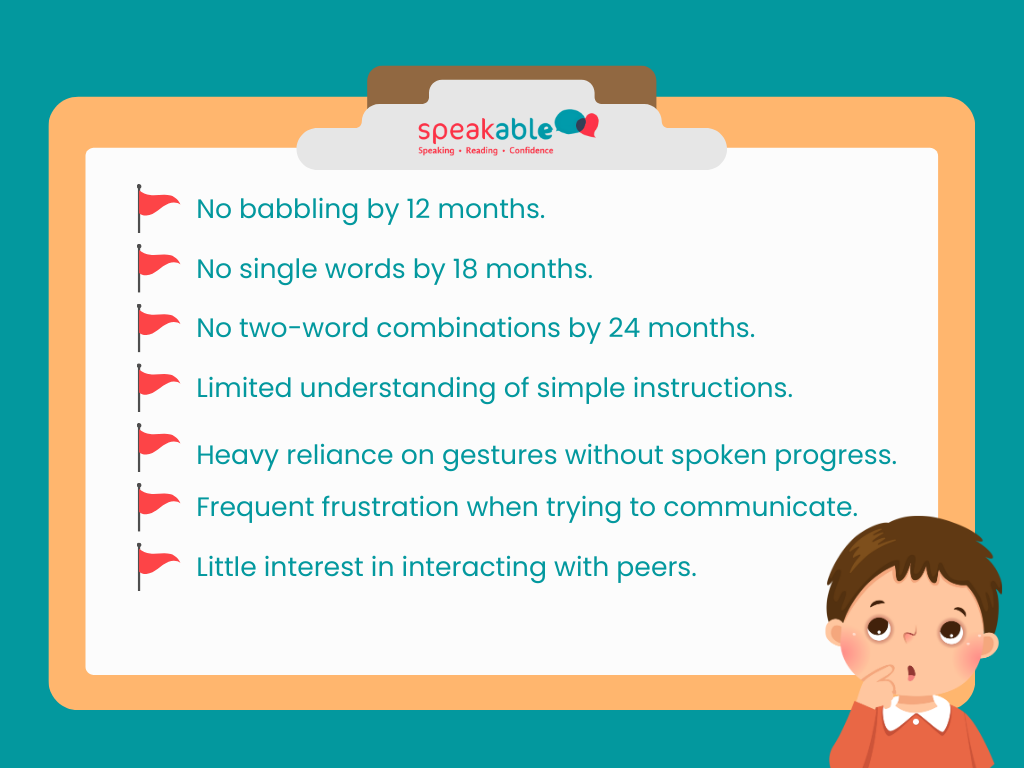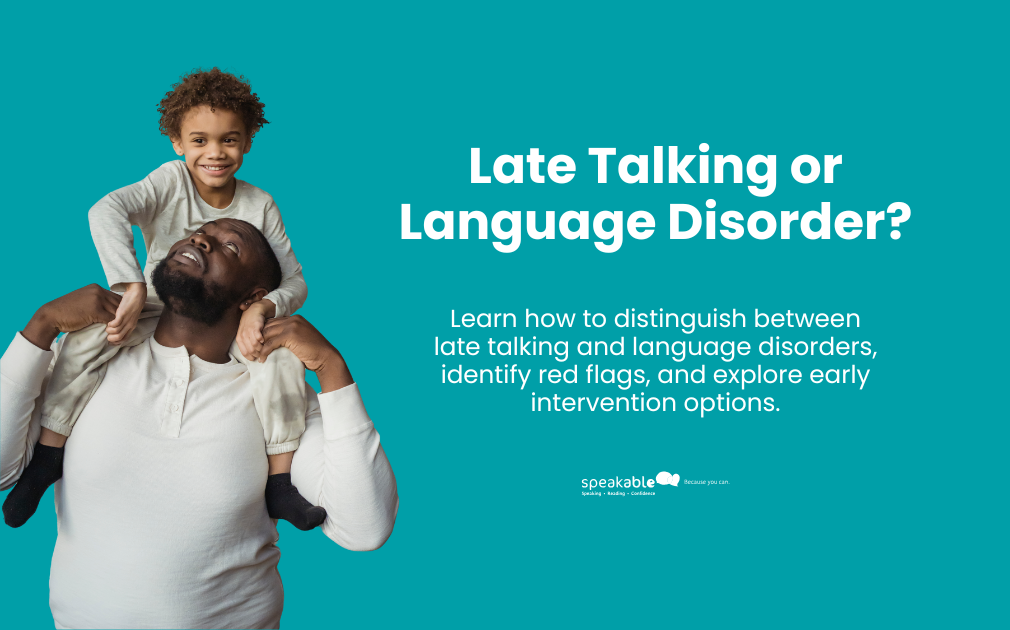Late Talking or Language Disorder? How to Tell the Difference
Learn how to distinguish between late talking and language disorders, identify red flags, and explore early intervention options.
Why Knowing the Difference Matters
It’s natural for parents to compare their child’s speech to that of peers — and to worry if their child isn’t talking as much as expected. But here’s the important truth: not every child who talks late has a language disorder. Some are simply late talkers who will catch up over time, while others may show signs of a more persistent challenge.
Understanding the difference between a late talker and a language disorder can reduce anxiety and ensure children get the right support at the right time. If you’d like more background on developmental milestones, see our blog When To Be Concerned: A Look At Speech Development
What Is a Late Talker?
A late talker is a child who starts speaking later than expected but still shows healthy development in other areas, such as:
- Using gestures to communicate.
- Making good eye contact.
- Engaging in play and showing social interest.
- Understanding much more than they can say.
Many late talkers gradually catch up, though some may benefit from speech-language therapy to ensure steady progress. According to the American Speech-Language-Hearing Association (ASHA), late talkers with strong comprehension and play skills often do well with time and support.
What Is a Language Disorder?
A lA language disorder is more than a late start. It involves ongoing challenges with understanding and/or using language that don’t resolve on their own. Children with a language disorder may:
- Struggle to follow simple directions.
- Use fewer words or very short sentences compared to peers.
- Show frustration when trying to communicate.
- Have difficulty engaging with other children in play or conversation.
For a deeper understanding of how language difficulties can present, check out our post Understanding the Spectrum of Speech Disorders.
Red Flags to Watch For
While every child develops at their own pace, certain signs may indicate it’s time to seek professional support:

The Raising Children Network highlights that children who miss several of these milestones should be assessed early to prevent further delays.
Why Early Intervention Matters
Parents are often told to “wait and see,” but this approach can delay valuable support. Research shows that early Parents are often told to “wait and see,” but this approach can delay valuable support. Research shows that early intervention leads to better long-term outcomes, including:
- Stronger language development.
- Reduced frustration and behavioral challenges.
- Improved readiness for school.
- Stronger parent–child relationships.
UNICEF also stresses the critical window of the early years in their report on Early Childhood Development, noting that timely intervention gives children the best chance to thrive..
Pathways to Support
If you’re concerned about your child’s speech and language milestones, here are practical steps you can take:
- Talk to your pediatrician about your concerns.
- Seek an evaluation from a speech-language pathologist (SLP).
- Create a personalized support plan based on your child’s strengths.
- Track progress and adjust strategies as needed.
- Work together with educators and therapists to ensure consistency across environments.
Every Child Deserves to Be Heard
Being a late talker does not mean a child has a language disorder. But recognizing the differences and red flags helps parents and educators take the right steps with confidence.
At Speakable, we support families in navigating these uncertainties, offering assessments and early intervention pathways tailored to each child’s needs. Every child deserves the chance to be heard — in their own voice and at their own pace..



